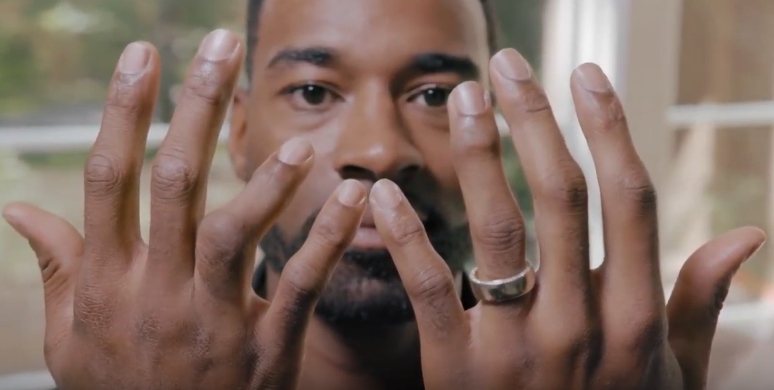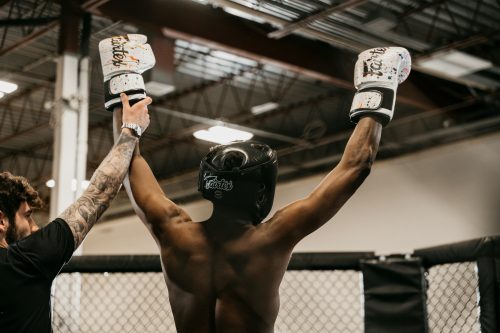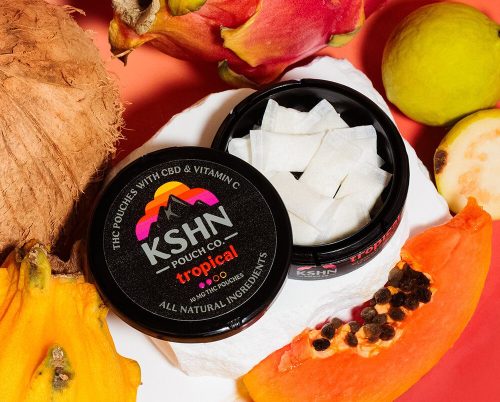Calvin Johnson’s career was cut short for many reasons, but prolonged mental and physical wear and tear seemed to be at the core of his retirement. While his honesty about his cannabis use helps further the conversation about the plant’s place in professional sports, the NFL’s most recent collective bargaining agreement proves there’s still a long way to go.
Calvin Johnson was undoubtedly one of the best wide receivers of his generation and he only played nine seasons in the NFL. This is a relatively short career for a player who is held in such high regard and his name is consistently mentioned among other great deep threats like Randy Moss and Julio Jones. Johnson was a six-time Pro-Bowler and voted as a First-Team All-Pro three times.
It’s obvious his cannabis use never came close to affecting his play, but the NFL has been incredibly punitive when it comes to in-season cannabis use. The most recent collective bargaining agreement (CBA) negotiated between the NFL Players Associations (NFLPA) and the owners have lessened the punishments associated with in-season cannabis use and reduced the testing period during the offseason.

The new CBA agreement won’t suspend players for positive cannabis tests unless there is “extreme and repeated disregard of the policy or significant violations of applicable law regarding the possession and use of marijuana.” The off-season testing window is also decreasing from roughly five months to just two weeks.
While the CBA’s cannabis policy is certainly a step in the right direction, it’s still whack as fuck. The XFL did a better job and they aren’t even around anymore. It still doesn’t allow the players to use cannabis to combat the physical and mental repercussions of football. It’s a wasted opportunity to increase the NFL player’s quality of life during a football season that has reprehensible physical and potential neurological consequences.
Johnson certainly isn’t the only professional football player that used cannabis to cope with the damage he suffered from NFL games. Many players have opted to use cannabis instead of pain killers, just ask Brett Favre how dangerous pain killer addictions can be. While most simply keep it to themselves, others have been incredibly vocal about their cannabis use, players like former Baltimore Ravens’ offensive lineman, Eugene Monroe.
Monroe became the first active players to start advocating for the medical use of cannabis among professional athletes. His activism also coincided with the end of tenure as a Baltimore Raven. He started raising awareness for cannabis in 2016 and decided to retire the same year so he could tackle the cannabis activism fulltime.
“It’s time for the NFL to change its archaic standards to better protect its players. For too long, I’ve watched my teammates and good friends battle with opioid addiction and leave the game with a long road still ahead; it’s time to make a change.”
Eugene Monroe
While the NFL is barely loosening their restrictions on cannabis, Major League Baseball (MLB) has already completely removed cannabis from their banned substance list. This allows MLB players to walk into legal dispensaries and shop for cannabis without any fear of punishment.

Any professional athlete is sure to benefit from the medical benefits of cannabis, but combat athletes like NFL players could make a valid argument that they need it the most. Head trauma is the scariest repercussion football offers. The NFL routinely changes rules aimed towards increasing player safety, but their efforts are almost solely aimed towards on-the-field rule changes while avoiding drug policy changes.
There really isn’t any more logical excuses for preventing athletes from using cannabis. There’s enough scientific research to back up its medicinal benefits, not to mention countless anecdotal evidence to support its use.
Professional athletes pay more attention to what they put into their bodies than any other group of people on the planet — if they feel cannabis helps them, than it helps, plain and simple. If the NFL is so concerned with player safety, maybe they should listen to players like Calvin Johnson when they say cannabis use helps cope with professional football’s brutality.
Calvin Johnson Reveals Why He Smoked Cannabis After Every Game
RAPPER WEED: WHICH RAPPERS HAVE CANNABIS PRODUCTS IN THE MARKET?
10 UNDERRATED FEMALE RAPPERS YOU SHOULD LISTEN TO RIGHT NOW
9 RAPPERS FROM DETROIT YOU NEED TO KNOW THIS YEAR







